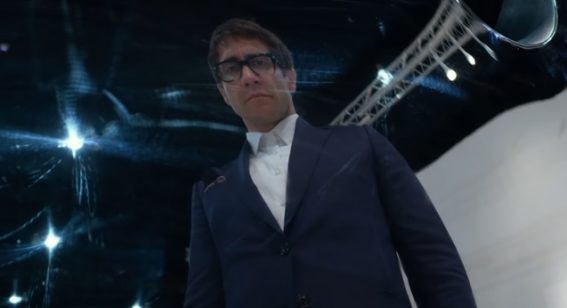How It Ends review: Netflix’s apocalyptic road movie is a terrible bore

When will the world end, and why on earth is it taking so long? These are not ideal questions to ponder while watching a film about the apocalypse. And yet in the Netflix-produced How it Ends, a doomsday road movie almost pathologically devoid of purpose, we wait and wait and wait, and the mind wanders. Director David M. Rosenthal finds news ways to say and feel nothing. There are no bold ideas or thought bubbles; no exciting action sequences or set pieces. It isn’t thick, spooky smoke that chokes the characters in this film but a terrible air of complacency.
The languid pace of How it Ends might not have been a problem had the personalities populating this ride to nowhere been interesting. Alas: they are threadbare souls, with no residence or purpose in the narrative beyond purpose itself. Protagonist Will (Theo James) drives from Chicago to Seattle to find his girlfriend Samantha (Kat Graham). The country has been hit by some kind of mysterious weather event, though writer Brooks McLaren is uninterested in explaining what this is (“how artistic!”, he seems to hope the audience will respond).

As director Zak Hilditch demonstrated in his excellent, anarchic 2013 Australian film These Final Hours, it is not the prospect of the end of the world that compels us but how humans might respond to it. In Hilditch’s vision of hell on earth came the immediate breakdown of society, with games of Russian roulette played around drug-fuelled pool parties while grubby men roam the streets wielding meat cleavers.
Rosenthal presents a world where, only a couple of days after the power goes out, people are – in the words of the narrator from The Road Warrior – ready to wage war for a tank of juice. McLaren’s writing is neither realistic nor compelling, gorging on the kind of tense fleeting confrontations we’ve seen many times in many better films – from Mad Max to The Road to virtually any zombie movie.
the film’s steady, soporific continuity becomes maddening; one feels inclined to grab it and shake it to life
These Final Hours took the time to flesh out a meaningful relationship between the protagonist and a young girl, suggesting that even in the darkest times humanity has something worth fighting for. In How it Ends we are merely informed that Samantha is pregnant: an inherently profound development in the right hands and lazy shorthand in the wrong.
It doesn’t help that the great character actor Forest Whitaker joins star Theo James in the car for a substantial portion of the running time, eschewing his regular habit of contributing tantalisingly brief performances. Not even Whitaker, other than in the most literal terms, can step on the accelerator. Like the protagonist his character is neither crude cypher nor remotely complex individual; he just sort of is.
How It Ends is reasonably accomplished technically, Peter Flinckenberg’s cinematography and Jason Ballantine’s editing building a consistent atmospheria. But the film’s steady, soporific continuity becomes maddening; one feels inclined to grab it and shake it to life. A generous reading would be that Rosenthal demonstrates considerable restraint, though that word only really has value if the work in question restrains from something, not from everything. Here the director restrains from posing questions, pursuing ideas, and the conviction necessary to make audiences think and feel.


















